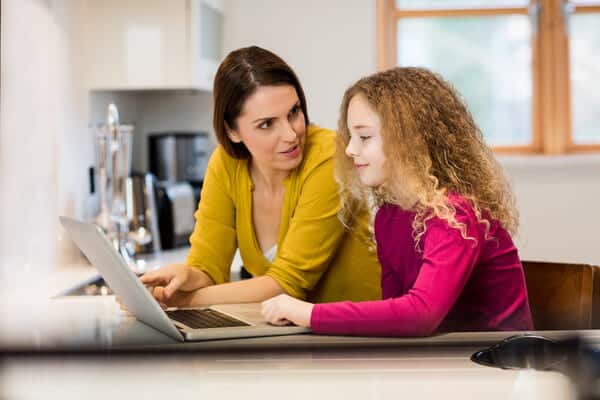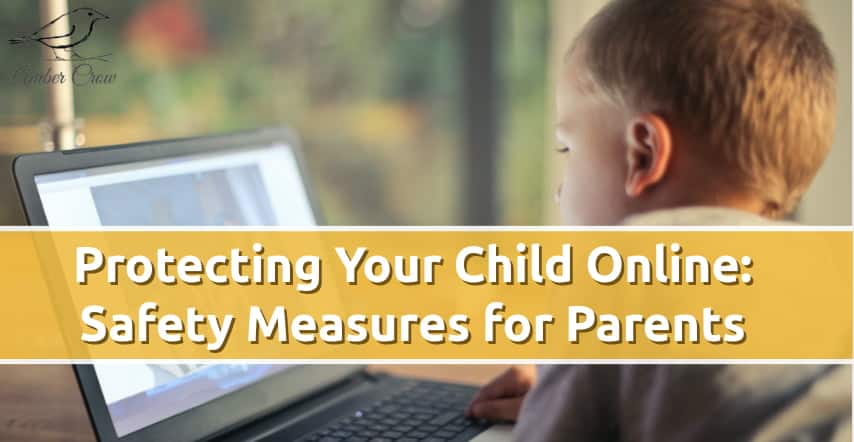As parents, the role we play in shaping our children’s futures cannot be understated. One crucial aspect of child development that often doesn’t get enough attention is socialization. What does it mean to socialize healthily? How can you as a parent promote this in your child? Grab a cup of coffee and get comfortable; this guide will answer all your questions.
The Importance of Healthy Socialization for Kids

So, why is healthy socialization important? Picture this: a sapling growing in a garden, reaching out its roots and branches in all directions. Similarly, socialization is how children extend themselves into the world, learning how to interact, share, empathize, and connect with others.
It plays a pivotal role in mental and emotional health and shapes their outlook towards society.
The Role of Parents in Promoting Healthy Socialization
As parents, you are the gardeners of these young saplings. You are responsible for providing a supportive and stimulating environment that fosters their social growth. Think of yourself as your child’s first friend, teacher, and guide in navigating the social sphere.
Methods of Promoting Healthy Socialization

Interactive Play
Play is the language of children. Through play, children learn to communicate, solve problems, and understand others’ perspectives. Organize playdates or fun family games to encourage your child to interact and engage with others.
Encouraging Team Activities
Participation in team activities like sports or group projects nurtures cooperative skills, understanding, and respect for others. Remember the first time you were part of a team? How did it feel to win together, lose together, learn together?
Role of Family Gatherings
Family gatherings are like a microcosm of society, exposing children to different age groups and personalities. It’s a safe space for them to observe, mimic and practice social interactions.
Protections your children online is a major concern these days. Please take a look at our guide for tips, Protecting Your Child Online: Safety Measures for Parents
The Influence of Digital Media on Socialization
Balancing Screen Time
While digital media can be a great educational tool, it’s crucial to strike a balance. Too much screen time can lead to isolation. Remember, no app can substitute for human interaction.
Educational Platforms for Social Development
Choose educational platforms that promote interaction and teamwork. Several online resources are designed to help children develop social skills in an engaging way.
Overcoming Common Socialization Challenges

Dealing with Shyness
If your child is naturally shy, it’s important to encourage them to step out of their comfort zone gently, but without forcing them. Every child is different; some flowers take longer to bloom, and that’s okay.
Managing Peer Pressure
- Developing Self-confidence: Encourage your child to trust their instincts and understand that their opinion and feelings are valid and important.
- Promoting Individuality: Teach your child the value of their own voice and the importance of making decisions based on their own judgment, not because “everyone else is doing it.”
- Teaching Assertiveness: Teach your child to say “no” when they are uncomfortable with something, without feeling guilty.
- Open Communication: Maintain an open line of communication with your child. Ensure they feel comfortable talking about their day, their friends, and their experiences with you.
- Providing a Safe Environment: Ensure your child feels safe at home to share their experiences and fears. This safe space allows them to reflect on their experiences and learn from them.
- Discussing Real-Life Scenarios: Use books, movies, or real-life situations to discuss examples of peer pressure. Discuss different ways to handle such situations and strategize together.
Peer pressure, the influence from a peer group to act or behave in a certain way, is a significant part of a child’s social development. It’s a phenomenon that can have both positive and negative effects. On the one hand, it can encourage conformity to societal norms and motivate good behavior.
On the other hand, it can also lead to risky behavior or compromise a child’s individuality.
Teaching your child to manage peer pressure effectively is an essential part of fostering healthy socialization. But how do we do this? Let’s delve deeper.
Developing Self-confidence
Self-confidence is the cornerstone of resisting peer pressure. Encourage your child to trust their instincts and understand that their opinion and feelings are valid and important. Make them feel valued and respected, and this will significantly boost their confidence.
Promote Individuality
Teach your child that it’s okay to be different. Each one of us is unique, and our differences make us who we are. Teach them the value of their own voice and the importance of making decisions based on their own judgment and not because “everyone else is doing it.”
Teaching Assertiveness
Assertiveness is the ability to express one’s feelings and assert one’s rights while respecting others. Teach your child to say “no” when they are uncomfortable with something, without feeling guilty. Role-playing different scenarios can be a great way to teach assertiveness skills.
Open Communication
Maintain an open line of communication with your child. Make sure they feel comfortable talking about their day, their friends, and their experiences with you. It’s important to listen without judgment and provide guidance when necessary.
Provide a Safe Environment
Ensure your child feels safe at home to share their experiences and fears. This safe space will allow them to reflect on their experiences and learn from them.
Discussing Real-Life Scenarios
Use books, movies, or real-life situations to discuss examples of peer pressure. Discuss different ways to handle such situations and come up with strategies together.
Remember, managing peer pressure is not about completely isolating your child from the influence of their peers. It’s about equipping them with the tools and confidence they need to make their own decisions, even when they find themselves in the face of contrary opinions. By instilling these skills, you help your child stand up for themselves and foster healthy relationships with their peers.
Recognizing and Reinforcing Positive Social Behaviours

When it comes to fostering social skills in children, a two-fold approach is necessary: recognizing and reinforcing.
Observing your child in social settings is crucial. Watch how they interact with others, notice their reactions, and identify areas of strength and areas that need improvement.
Once you understand your child’s social behaviors, the next step is to encourage and reinforce positive behaviors.
Reward Systems and Social Skills
In the world of child psychology, reward systems have proven to be an effective tool to encourage desired behaviors. This can be anything from verbal praise and attention to tokens or stickers that can be accumulated to earn a larger reward.
For instance, if your child shares their toy with a sibling or friend, acknowledging this behavior with a simple, “That was very kind of you to share your toy!” can go a long way. The key here is immediacy and specificity. The sooner you praise the behavior, the stronger the association will be. And the more specific you are about what behavior was good, the clearer it will be for your child.
But what if your child does something socially unacceptable, like not sharing or being unkind? Here, the best way forward is not punishment but to gently remind them of the expected behavior.
Role Modeling Positive Social Behavior

As the old saying goes, children are like sponges – they absorb everything around them. As parents, you are your child’s first and most influential role model. Your actions, reactions, and interactions with others are displayed for your child to learn from.
For example, how do you react when someone cuts you off in traffic? How do you treat service workers? How do you handle disagreements? All of these are social situations where you can demonstrate appropriate behavior.
But role modeling isn’t just about showcasing ideal behavior. It’s also about showing your child that it’s okay to make mistakes and how to learn from them. After all, nobody’s perfect. If you snap at someone, apologize. Show your child that everyone has moments of weakness, and what’s important is how we rectify our mistakes.
FAQs – Promoting Healthy Socialization for Kids
1What Is Healthy Socialization in Children?
Healthy socialization in children is the process of learning the norms, values, behaviors, and social skills acceptable to society.
How Can I Promote Healthy Socialization in My Child?
Promoting healthy socialization can be done through interactive play, encouraging team activities, family gatherings, and monitoring digital media use.
How Can I Help My Shy Child Socialize?
You can help your shy child socialize by gently encouraging them to interact with others, praising their efforts, and ensuring they understand that it’s okay to take things at their own pace.
How Does Digital Media Influence My Child’s Socialization?
Digital media can be a tool for learning and interaction but should be balanced with real-life social situations to avoid isolation.
How Can I Reinforce Positive Social Behaviors in My Child?
Positive social behaviors can be reinforced through praise, rewards, or simple acknowledgment of the behavior. It helps children understand the benefits of such actions and encourages them to repeat them.
Wrapping Up Promoting Healthy Socialization for Kids
Promoting healthy socialization in children is like tending to a garden. It takes time, patience, and love, but the resulting blossoms are worth every effort. As parents, we can shape our children’s social futures, an opportunity that is as exciting as it is daunting. So let’s embrace it wholeheartedly and raise children who are confident, empathetic, and socially healthy.

